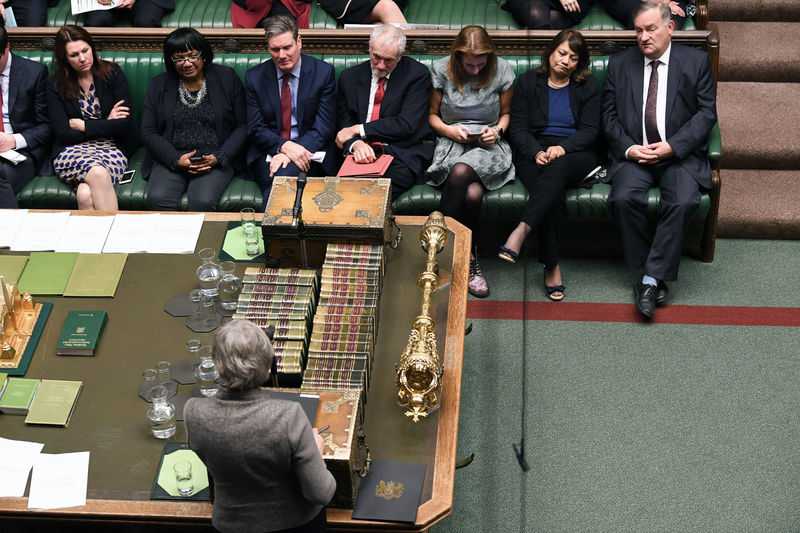May to hold Brexit deal vote in mid-Jan.
19 December, 2018

Prime Minister Theresa May said on Monday she would bring her Brexit deal back to Parliament for a mid-January vote, pledging to get assurances from the European Union before then to break a deadlock over Britain’s fraught efforts to quit the bloc.
With just over 100 days until Britain is due to leave the EU, May faced accusations from some lawmakers that she was trying to force a deeply divided Parliament into backing her deal by running the clock down to exit day.
A mid-January vote could oblige lawmakers to make a decision between her deal or leaving without one on March 29, a nightmare scenario for many businesses.
May is pressing on with her deal to leave the EU, rejecting calls for a second referendum or to test support for different Brexit options in Parliament, despite hardening opposition to the agreement to maintain close ties.
May said Parliament would debate the deal in January, before a vote in the week beginning Jan. 14 — more than a month after an original Dec. 11 vote that she cancelled after admitting she faced a significant defeat.
After a tumultuous week in which she survived a confidence vote within her Conservative Party and sought last-minute changes to the Brexit agreement reached with Brussels last month, May said again that the alternatives to her deal were leaving without an agreement or no Brexit at all.
“I know this is not everyone’s perfect deal. It is a compromise. But if we let the perfect be the enemy of the good, then we risk leaving the EU with no deal,” she told lawmakers, her speech punctuated by loud shouts of protest.
“Avoiding no deal is only possible if we can reach an agreement or if we abandon Brexit entirely.”
She said the EU had offered “further clarification” on the most contentious aspects of the withdrawal agreement and her government was seeking “further political and legal assurances.”
The leader of the opposition Labour Party sought to turn up the pressure by lodging a motion of no confidence in May for not quickly rescheduling the vote by lawmakers on her Brexit plan that she delayed last week.
“This is unacceptable in any way whatsoever,” Jeremy Corbyn said in the House of Commons.
But the result of a no-confidence vote in May as prime minister would be non-binding and, if it takes place, there were signs that Labour would struggle to embarrass May.
Some Conservative Party lawmakers, who want a more definitive break from Brussels and challenged her leadership last week, said they would not support Labour’s vote. Similarly, a Northern Irish party that props up May but opposes her Brexit plans said it would not back it.
A government source said Downing Street would not allow time in Parliament for “a stunt” and if Labour was serious it should attempt a full vote of no confidence in the government, which would bring it down if backed by Parliament.
With the EU unlikely to offer concessions that would win over lawmakers, more politicians are backing a second referendum — something some of May’s ministers say could be avoided if the government tested Brexit scenarios in parliamentary votes.
“What is irresponsible is delaying a vote on her agreement, not because she is going to get any changes to it, but because she wants to run down the clock and try and intimidate MPs (members of Parliament) into supporting it to avoid no deal,” opposition Labour lawmaker Liz Kendall said in Parliament.
Parliament is deeply divided, with factions pressing for different options for future ties, exiting without a deal or remaining in the EU.
May and her ministers have repeatedly ruled out a replay of the referendum, saying it would deepen rifts and betray voters who backed Brexit by 52 percent to 48 percent in 2016.
TAG(s):
